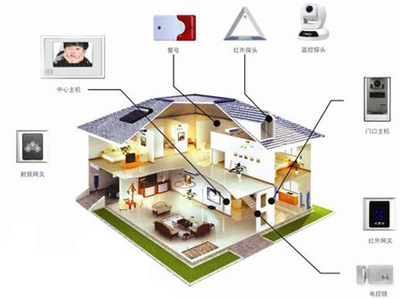Smco Magnet Block,Smco Radial Magnet,Smco Permanent Magnet Haoqi Magnetic Materials Co., Ltd. , http://www.sh-magnet.com For the majority of smart home manufacturers, there are many obstacles encountered in the development and expansion of products and brands, including product cost, system function, standard agreement, and after-sales service.
For the majority of smart home manufacturers, there are many obstacles encountered in the development and expansion of products and brands, including product cost, system function, standard agreement, and after-sales service.
There are three main types of smart home manufacturers in the market: The first one is based on traditional building intercom manufacturers, such as Guanlin, Anjubao, and DM, etc. These vendors mainly provide an intelligent integrated control. The platform integrates many subsystems such as security alarms and home appliance controls on the platform; the second is based on traditional home appliance manufacturers such as Haier, TCL, Gree, etc. These vendors mainly provide informationized and networked home appliances. The third is a company that focuses on lighting control, curtain control and other modules and interfaces, such as Sobo, Bochuang, Ruilang, and Clipsal. These manufacturers mainly cooperate with the first two types of manufacturers and provide various types of intelligent switches. And interface modules.
1, product cost
At present, the price of various types of smart home products is generally high, and the cost of purchasing a set of household products is as low as several thousand, and as many as tens of thousands. Compared with the actual investment of tens of thousands or hundreds of thousands when the owner is actually refurbishing, the proportion of such smart home products is actually very small. In this regard, it is necessary to strengthen the guidance of end users on the concept of consumption. For manufacturers, further reducing the cost of the product is the key.
2, system function
The system has to operate more complex, lack of personalized personalized experience, low product stability and other issues, all affect the development of the smart home market. To solve these problems, it is necessary for manufacturers to increase R&D efforts, increase product technology levels, and solve problems such as cost, performance, and operation, and win markets with stable and reliable products. Once the difficulties of cost and technology are overcome, the entire market will have very large demands.
3, standard protocol
At present, manufacturers manufacture equipment in accordance with their respective interface standards and protocols, and the result is poor compatibility between different vendors' equipment. Although the entire smart home function is powerful, there is no standard and unified communication protocol among the systems. Vendors are fighting each other, lacking in consistency, and ultimately causing inconvenience to users. With the promulgation of this year's General Technical Requirements for Electronic Systems for Homes and Buildings, although it is not compulsory, as an attempt to unify the smart home industry standards, it is believed that the industry will be promoted to a certain degree and a unified direction. .
4, after-sale service
The after-sales service of products is also a very important factor for the manufacturers to stand out from the market. Due to the restrictions on the scale of most manufacturers, the related smart home accessory manufacturers have not yet formed a system maintenance system. Once the products sold by the manufacturers have problems, Whether or not after-sales maintenance is timely and effective will be a major test for smart home manufacturers.
The bottleneck of the development of smart home manufacturers